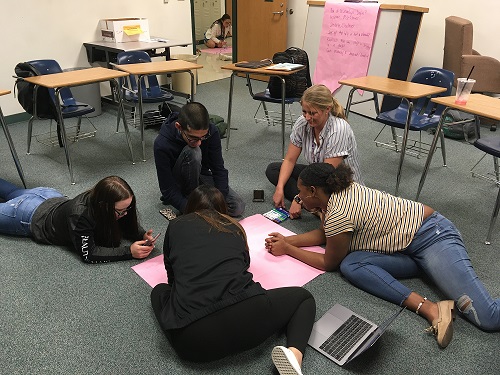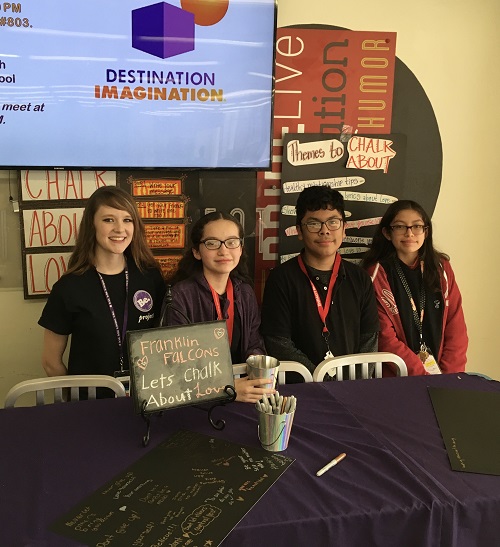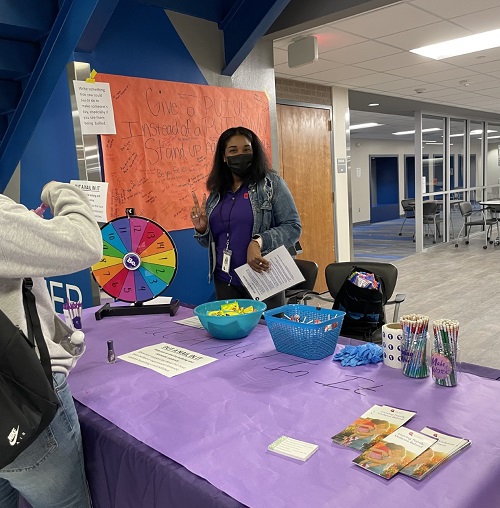by
User Not Found | Feb 17, 2022
February is Teen Dating Violence Awareness and Prevention Month
The Family Place is a Leader Providing Prevention Education in Area Schools
Teen dating violence is a pervasive problem—one in three teens will experience dating violence nationally. In Texas, the problem is even worse with 50% of teens affected, according to the Texas Council for Family Violence.
February is Teen Dating Violence Awareness Month, and The Family Place is hosting a public event to educate teens and parents about what they can do to prevent teen dating violence and sexual assault on February 12, 2022, from 10 a.m. until 12 p.m. The Teen Dating Violence Symposium will be held at the City of DeSoto’s Blackbox Theater, located at 211 East Pleasant Run Road, DeSoto, Texas 75115.
The Family Place provides extensive teen dating violence and sexual assault prevention education with a leadership development component in middle and high schools to more than 4,000 students each year. This work in schools is critical because two out
of three abused teens never seek help or tell anyone, including their parents.
Connection to a caring adult is the leading factor protecting youth against teen dating violence as well as mental health issues and substance abuse. The Family Place program, the Be Project, empowers youth to BE SAFE and encourages them to BE KIND, BE
COURAGEOUS and BE MORE.
“Education leads to prevention of dating violence, and the goal of the ‘Be Project’ is to reach as many students as possible to help them reach brighter futures. Through this program, The Family Place not only engages youth in social
action, but also works with parents, caregivers and teachers to create safe environments where youth voices can be heard,” said Mimi Sterling, CEO, The Family Place. “Teaching our kids the warning signs of dating violence and providing
them with concrete skills to engage in healthy relationships makes our communities stronger.”
The following information can help teens and parents prevent teen dating violence and sexual assault.
FOR TEENS: RED FLAGS YOUR FRIEND MAY BE EXPERIENCING TEEN DATING VIOLENCE
- Developing problems with drugs or alcohol
- New problems at school
- Fear, anxiety, aggression, agitation
- Depression, fatigue, inability to focus
- Loss of interest in activities and friends, isolation
- Becoming defensive or secretive about their partner
- Making excuses for their partner’s behavior
FOR TEENS: DOCUMENTING ABUSE CAN HELP WITH REPORTING IT
- Keep track of the abuser’s behavior by writing down every incident in a log
- Take a screenshot of threatening or inappropriate messages
- Photograph evidence such as injuries or damaged property
FOR PARENTS: BUILDING TRUST WITH YOUR TEEN
Safety + Connection + Support = Trust
Strategies to Create Safety
- Set clear boundaries and respect those of your teen
- Be open and transparent in communication
- Approach difficult conversations with curiosity rather than judgment
- Hold yourself accountable when you make mistakes
Strategies to Create Connection
- Establish routines as a family
- Set aside time to spend together
- Invest in your teen’s interests, hobbies and activities by getting involved
- Respect youth’s autonomy and opinions
- Ask questions to gain understanding of their thoughts, feelings and interests
Strategies to Build Support
- Use active listening skills
- Validate your teen’s feelings and experiences
- Engage in respectful communication by using the same healthy communication skills you want your teen to use
- Put yourself in your teen’s shoes and ask yourself how you would feel
Active Listening Techniques
- Pay attention
- Withhold judgment
- Be patient
- Pay attention to your body language
- Restate and summarize what your teen has told you
- Ask clarifying questions
FOR PARENTS: SIGNS THAT YOUR OWN CHILD IS BEHAVING ABUSIVELY
- Checking their partner’s phone, email, or social media accounts without permission
- Putting their partner down frequently, especially in front of others
- Isolating their partner from friends or family (physically, financially, or emotionally)
- Explosive outbursts, temper, or mood swings
- Overly possessive, jealous, insecure, or controlling behavior
- Accusing their partner of cheating
- Constantly calling, texting, and “checking on” their partner
- Any physical harm or property damage
- Pressuring or forcing a partner to have sex
- Strict gender role expectations
THE FAMILY PLACE BE PROJECT CLIENT STORY
After a Be Project lesson, one of our educators stayed to talk with a group of students. One student said she was in a relationship that she no longer wanted to be in but was having a hard time ending it. She was worried about hurting the other person
because she cared about him as a friend before they dated. Another student that was part of the conversation told her that she was using passive communication in the relationship “like Miss Kari told us.” She went on to tell the student,
as well as two other male students who joined in the conversation, that she needed to be more assertive. “You have to be assertive like Miss Kari said so that he knows you do not want to be with him.” Our educator was so proud that the
students were not only listening to the lesson about communication styles but also applying it to real-life situations. The group ended up discussing different ways the student could tell her boyfriend how she was feeling. The student seemed to feel
more confident expressing herself once the conversation ended. Later she broke up with her boyfriend, and said he was not upset with her. She was direct in expressing how she felt, and the conversation went well.
Photos can be viewed here.
ABOUT THE FAMILY PLACE
In 1978 a group of community volunteers organized The Family Place as one of the first family violence shelters in the state. Today The Family Place is the largest family violence service provider in Texas, with three emergency shelters providing 177
shelter beds each night, including the state’s only shelter for men and children, and three counseling centers. We served 11,933 clients last year providing 62,118 days of emergency shelter, 36,015 days of transitional housing, 18,526 hours
of counseling to nonresidential clients, and 8,758 hours of counseling to batterers. All our services are in Spanish and in English. For more information on The Family Place call 214.559.2170 or visit familyplace.org.



Photos Courtesy of the The Family Place